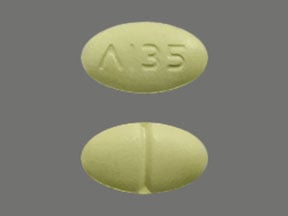
Maxzide Coupons & Savings Card – Discount Prices from $11.84
Brand for: Triamterene-hydrochlorothiazide
My prescription
Edit
75-50MG, Triamterene-hydrochlorothiazide (30 Tablets)
Select pharmacy

CVS
$19.54
COUPON PRICE
Walgreens
$11.84
COUPON PRICE
Albertsons
$18.35
COUPON PRICEMaxzide savings card
Show this card to your pharmacist
Walgreens
$11.84
BIN
ID
PCN
GRP
019876
LH8DCE680D
CHIPPO
LHX
Powered by
More prescriptions for hypertension
More prescriptions for hypertension
Maxzide (Triamterene-hydrochlorothiazide) dosage forms
Dosage Quantity Price from Per unit 75-50MG 30 Tablets $11.84 $0.40 75-50MG 15 Tablets $10.42 $0.69 75-50MG 45 Tablets $13.26 $0.29 75-50MG 60 Tablets $14.68 $0.24 75-50MG 90 Tablets $25.36 $0.28
| Dosage | Quantity | Price from | Per unit |
|---|---|---|---|
| 75-50MG | 30 Tablets | $11.84 | $0.40 |
| 75-50MG | 15 Tablets | $10.42 | $0.69 |
| 75-50MG | 45 Tablets | $13.26 | $0.29 |
| 75-50MG | 60 Tablets | $14.68 | $0.24 |
| 75-50MG | 90 Tablets | $25.36 | $0.28 |
What is the drug Maxzide used for?
Maxzide is used to treat high blood pressure and edema, which is fluid retention associated with conditions such as congestive heart failure, liver cirrhosis, or kidney disorders. It combines two diuretics, triamterene and hydrochlorothiazide, to help the body eliminate excess salt and water.
Is Maxzide the same as hydrochlorothiazide?
Maxzide is not the same as hydrochlorothiazide, but it contains hydrochlorothiazide as one of its components. Maxzide is a combination medication that includes both hydrochlorothiazide and triamterene. Hydrochlorothiazide is a diuretic, while triamterene is a potassium-sparing diuretic. Together, they are used to treat high blood pressure and edema.
Is Maxzide hard on the kidneys?
Maxzide, which contains triamterene and hydrochlorothiazide, can potentially affect kidney function. It is important for patients to have their kidney function monitored regularly while taking this medication, especially if they have pre-existing kidney issues. It is advisable for patients to consult their healthcare provider for personalized advice and monitoring.
What is another name for Maxzide?
Another name for Maxzide is Triamterene-Hydrochlorothiazide.
Does maxzide deplete potassium?
Maxzide is a combination medication that includes triamterene and hydrochlorothiazide. While hydrochlorothiazide can lead to potassium depletion, triamterene is a potassium-sparing diuretic, which helps to retain potassium levels. Therefore, Maxzide is generally not associated with potassium depletion. However, it is important for patients to have their potassium levels monitored regularly while taking this medication.
